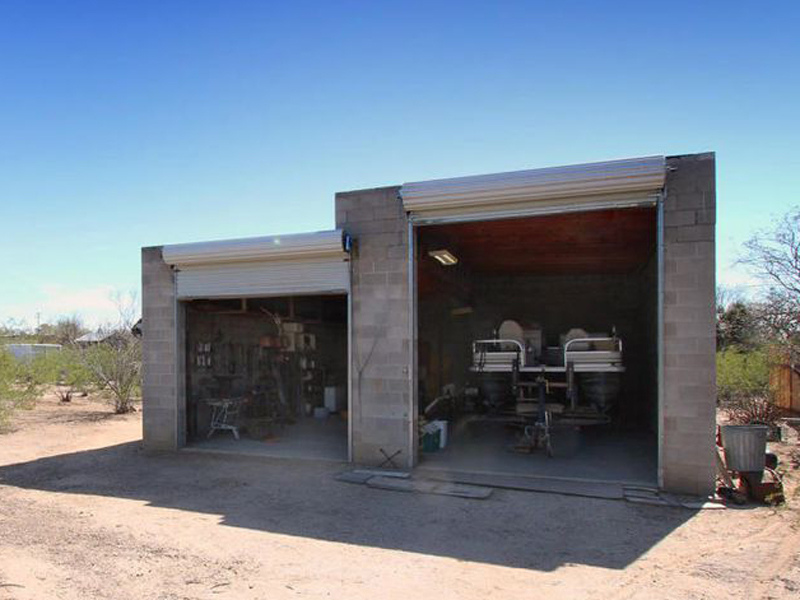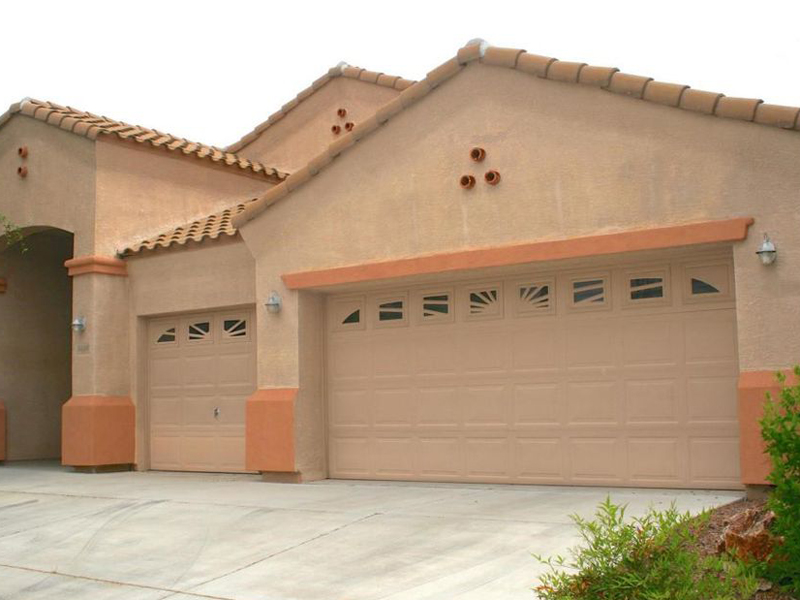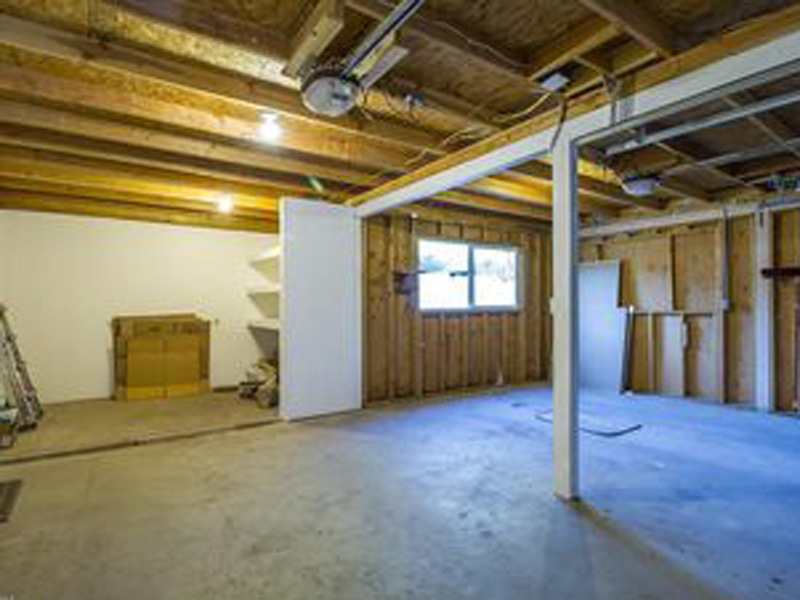Is Your Garage Door Stuck? Here's What to Do Very first
When your garage door will not open up, begin with these vital safety and security checks prior to attempting any repairs. Initially, ensure no person is standing near the door and that vehicles are free from the opening. Try to find obvious indicators of damages like broken panels, curved tracks, or hanging cables. If you see a snapped springtime or seriously damaged parts, quit instantly and call a professional—-- these repair work need specialized tools and know-how to manage safely.

Examine These 6 Things Before Calling an Expert
Prior to assuming you require costly repair services, run through this fast analysis checklist that resolves most garage door problems:
-
Power source: Validate the opener is connected in and the outlet is functioning
-
Remote batteries: Replace dead batteries in your push-button control
-
Hand-operated lock: Check if somebody mistakenly engaged the manual lock
-
Obstructions: Search for debris obstructing the door's course or sensing units
-
Emergency launch: Guarantee the red emergency situation cord hasn't been drawn
-
Breaker: Verify the garage circuit hasn't tripped
These simple checks deal with around 70% of garage door concerns without requiring expert intervention.
10 Typical Reasons Your Garage Door Won't Open
Comprehending why your garage door opener isn't functioning aids you select the right solution. Right here are the most regular reasons property owners experience:
Dead remote batteries stand for the easiest fix—-- when batteries pass away, the remote can not send signals to the opener. Power interruptions or stumbled breakers cut electrical power to the motor. Busted springtimes avoid the door from lifting appropriately and call for immediate professional interest. Sensing unit imbalance causes security systems to block door procedure. Track obstructions stop rollers from moving smoothly. Motor overload triggers automated shutoffs when the opener discovers resistance. Limit button problems confuse the opener about door placement. Cable damages interrupts the lifting device. Weather-related issues influence door activity throughout extreme temperature levels. Part wear from age slowly decreases system efficiency.
Problem # 1: Dead Push-button Control Batteries
When your wall switch works however your remote doesn't, dead batteries are usually the wrongdoer. Most garage door remotes use either 3-volt lithium or 12-volt alkaline batteries. Eliminate the back cover of your remote and check the battery kind. Change with fresh batteries and examine the remote. If it still doesn't function, you might require to reprogram it to your opener. Consult your opener's guidebook for details reprogramming guidelines, as the procedure differs by manufacturer.
Issue # 2: Power Supply Issues
Garage door power problems often originate from loosened connections or stumbled circuits. Examine that the opener is securely linked into its electrical outlet—-- vibration can loosen up connections in time. Evaluate the electrical outlet with one more device to confirm it's functioning. Examine your home's breaker box for tripped circuits, particularly if you have actually experienced storms or power variations. GFCI outlets may have tripped and need resetting. If the opener has power but will not respond, the concern likely lies elsewhere in the system.
Problem # 3: Broken or Damaged Springs
Damaged garage door springs are amongst the most hazardous elements to deal with. If you listen to a loud bang from your garage or discover the door really feels incredibly heavy when attempting to raise by hand, a springtime has likely snapped. Torsion springs run flat over the door, while extension springs remain on either side. Never try springtime fixings on your own—-- these elements save incredible tension that can cause serious injury or death. Professional replacement normally costs $150-$300 but guarantees your safety.
Trouble # 4: Obstructed Safety And Security Sensing Units
Modern garage doors feature security sensing units that avoid closure when objects are detected. These sensing units can quit the door from opening up if they're filthy, misaligned, or obstructed by debris. Clean sensor lenses with a soft cloth and guarantee nothing obstructs the unnoticeable light beam in between them. Inspect that sensing units are correctly lined up—-- most have indicator lights that show connection standing. Sensor issues often settle with straightforward cleansing and adjustment.
Problem # 5: Track Obstructions or Damages
Garage door tracks guide rollers as the door goes up and down. Dust, debris, old oil, or little items can jam the system. Examine tracks aesthetically and eliminate any kind of obstructions with a brush or cloth. Search for dents, flexes, or bending that could restrain smooth procedure. Minor track adjustments are feasible for convenient property owners, yet considerable damage needs specialist fixing to stop additional issues or safety risks.
Issue # 6: Garage Door Opener Motor Issues
When the garage door electric motor runs yet the door does not move, several concerns could be liable. The motor might be overloaded and turning off as a safety measure. Equipment wear, specifically in older devices, can avoid appropriate procedure. Chain or belt drive issues influence power transmission. If you listen to unusual grinding, clicking, or humming noises, stop using the opener promptly. Motor fixings often set you back greater than substitute, specifically for devices over one decade old.
Detailed Do It Yourself Troubleshooting Overview
Follow this organized method to garage door troubleshooting while prioritizing safety and security throughout the process:
Step 1: Examine the wall button initially. If it works yet the remote doesn't, focus on remote concerns. If neither works, inspect power supply.
Step 2: Check out the hand-operated launch cord. If it's been pulled, the opener is disengaged from the door. Press the trolley back to reconnect.
Step 3: Manually evaluate the door by disengaging the opener and trying to raise the door by hand. It should move smoothly and remain in area when half-open.
Tip 4: Examine noticeable components for damage, paying unique attention to springtimes, cable televisions, and tracks.
Tip 5: Check all safety attributes consisting of sensing units, limit switches, and auto-reverse features.
Action 6: Examination various controls (remote, wall button, keypad) to isolate the issue source.
Always use shatterproof glass and job gloves when carrying out evaluations, and never attempt repairs on springtimes or high-tension components.
When to Call a Specialist vs. DIY Solutions

Understanding when to call a garage door specialist versus attempting do it yourself repair services secures both your safety and your pocketbook. Manage these problems yourself: dead remote batteries, power supply issues, minor track cleaning, sensing unit cleansing and positioning, and basic lubrication.
Never ever attempt these repairs yourself: springtime replacement or modification, cable television repairs, major track realignment, electric wiring problems, opener electric motor substitute, or any kind of repair including high-tension parts. Expert service technicians have actually specialized tools, training, and insurance policy to take care of unsafe fixings safely.
Think about repair work prices versus substitute expenses, specifically for doors over 15 years of ages. Modern garage doors provide better security attributes, energy performance, and integrity than older models.
Emergency Garage Door Solutions
When you're stuck with a garage door that will not open up and need prompt gain access to, follow these emergency treatments:
Handbook Procedure: Draw the red emergency launch cord to disengage the opener. This enables manual operation yet calls for correct technique to stay clear of injury. Raise the door gradually and uniformly, utilizing leg muscles rather than your back. Many property doors consider 100-150 extra pounds, making them workable for many adults.
Short-term Repairs: If the door opens by hand yet won't keep up, prop it open with sawhorses or clamps—-- never utilize your body or vehicles as supports. For doors that won't shut entirely, ensure the opening is protected if you must leave.
Emergency situation Service: Lots of garage door business offer 24/7 emergency situation solution for scenarios involving safety and security concerns, trapped cars, or full system failures. While a lot more costly than regular service phone calls, emergency situation fixings provide prompt solutions when required most.
Security Warning: What NOT to Do
Garage door safety needs understanding hazardous repair work that should never ever be attempted by homeowners:
Never ever attempt to repair springtimes—-- they store sufficient energy to create fatal injuries when they snap or are poorly dealt with. Do not force a stuck door—-- this can harm the opener, tracks, or door panels, developing more expensive problems. Stay clear of bypassing safety and security attributes—-- sensing units and auto-reverse mechanisms prevent significant injuries and residential property damages.
Don't overlook odd sounds—-- grinding, scratching, or banging sounds indicate problems that worsen with time. Never utilize the door if wires are frayed or broken—-- the door could fall unexpectedly. Don't attempt electrical repairs unless you're a certified electrician—-- garage door openers utilize both 120V family existing and low-voltage control circuits.

Preventive Maintenance to Stay Clear Of Future Issues
Normal garage door upkeep prevents most common problems and prolongs system lifespan substantially:
Regular monthly Jobs: Visual evaluation of all parts, checking auto-reverse safety attributes, inspecting and tightening hardware, and cleansing tracks and sensing units.
Quarterly Jobs: Lubricating all relocating parts with suitable garage door lubricating substance, testing manual operation, and checking weather condition securing.
Yearly Jobs: Specialist assessment and tune-up, spring modification if needed, and opener upkeep including belt or chain adjustment.
Seasonal Tasks: Preparing for climate extremes, checking insulation, and readjusting opener setups for temperature level modifications.
Consistent maintenance prices much less than emergency situation repairs and ensures reliable operation year-round.
Garage Door Won't Open Frequently Asked Questions
Why will not my garage door open with the remote yet deals with the wall surface switch?
This usually shows dead remote batteries, signal interference, or the demand to reprogram the remote. Inspect batteries initially, then consult your opener guidebook for reprogramming directions.
Can I by hand open my garage door if the power is out?
Yes, draw the red emergency release cord to disengage the opener, after that lift the door by hand. Be gotten ready for the door's complete weight and lift with appropriate strategy to stay clear of injury.
How do I understand if my garage door spring is damaged?
Indicators include a loud bang from the garage, the door feeling exceptionally heavy when lifting by hand, noticeable spaces in the spring coils, or the door just opening up a few inches prior to quiting.
Is it risk-free to use my garage door if it will not open up completely?
No, partial procedure suggests mechanical troubles that could intensify all of a sudden. Quit using the door and have it inspected by a specialist to stop further damages or injury.
What should I do if my garage door opens up however will not shut?
Examine security sensing units for obstructions or misalignment, take a look at the tracks for debris, and test the auto-reverse function. If these do not address the issue, seek advice from a professional.
Just how much does it cost to fix a garage door that won't open up?
Prices vary extensively depending on the trouble: battery substitute ($5-$10), specialist medical diagnosis ($50-$100), spring replacement ($150-$300), or opener substitute ($200-$500).
Can weather affect my garage door's capacity to open?
Yes, extreme cold can enlarge lubricants and influence metal parts, while heat can create expansion problems. Most troubles resolve as temperature levels normalize, however persistent issues may require specialist attention.
Why does my garage door open up a few inches then stop?
This usually shows broken springs, restriction button troubles, or track obstructions. The opener's safety and security attributes stop operation when resistance is found, preventing damage to the electric motor or door.
Obtain Professional Aid for Complicated Issues
When DIY fixing does not fix your garage door troubles, professional service technicians supply the expertise and tools required for risk-free, enduring fixings. Qualified professionals identify issues properly, make use of manufacturer-approved parts, and supply guarantees on their work.
Professional services consist of: extensive system assessments, springtime and check here cable substitute, opener fixing and replacement, track alignment and replacement, electrical troubleshooting, and emergency situation solution calls.
What to anticipate: in advance rates, qualified and insured specialists, same-day solution for lots of repairs, and follow-up upkeep suggestions.
Most garage door business provide totally free estimates for major repairs and can provide immediate options for immediate troubles affecting home safety and security or automobile access.
Obtaining Your Garage Door Working Again
A garage door that will not open up does not have to wreck your day or break your budget plan. Start with basic troubleshooting actions like inspecting power, changing batteries, and checking out for apparent obstructions. Several problems have quick DIY solutions that bring back normal operation within minutes.
Nevertheless, identify when professional aid is essential—-- particularly for spring-related concerns, electrical troubles, or complex mechanical failures. Trying dangerous fixings on your own takes the chance of severe injury and often produces much more expensive issues.
Normal upkeep stops most garage door problems and guarantees trustworthy procedure for many years to find. When problems do take place, address them immediately to avoid more expensive repair services and preserve your home's protection and comfort. Whether you need a basic battery replacement or total system overhaul, services exist to obtain your garage door functioning efficiently again.
Eddie's Garage Door Service
5505 N La Canada Dr, Tucson, AZ 85704
(520) 965-8259